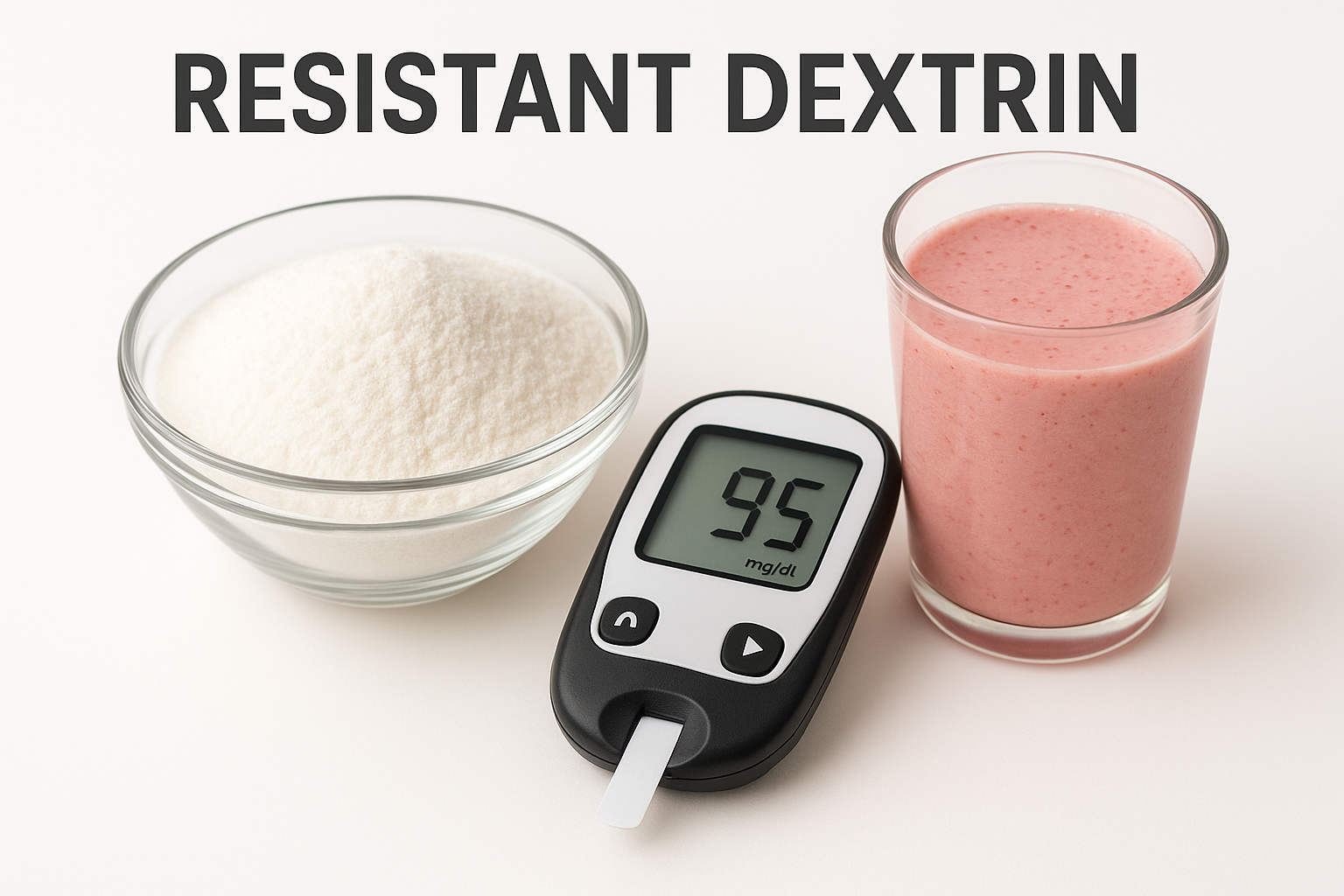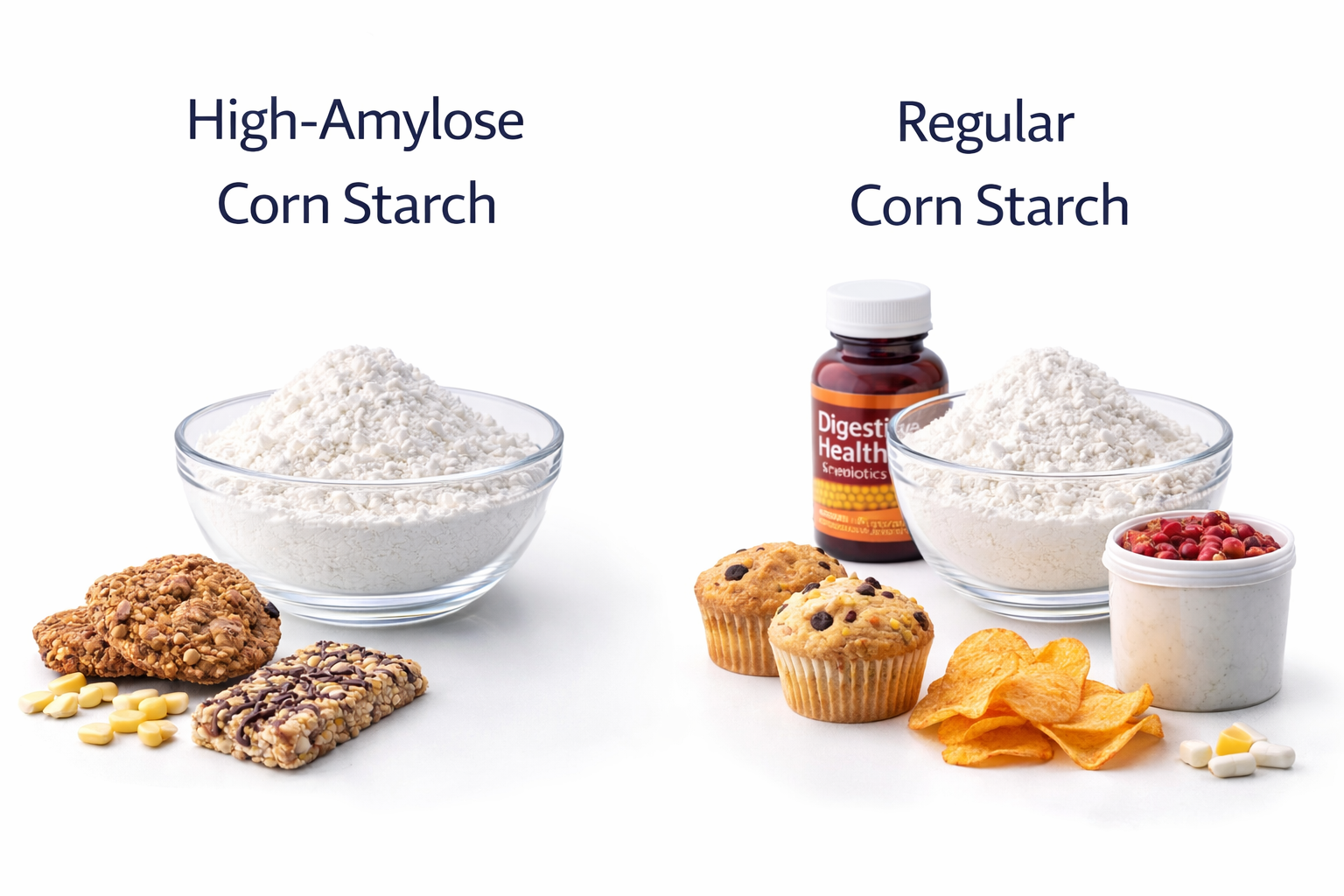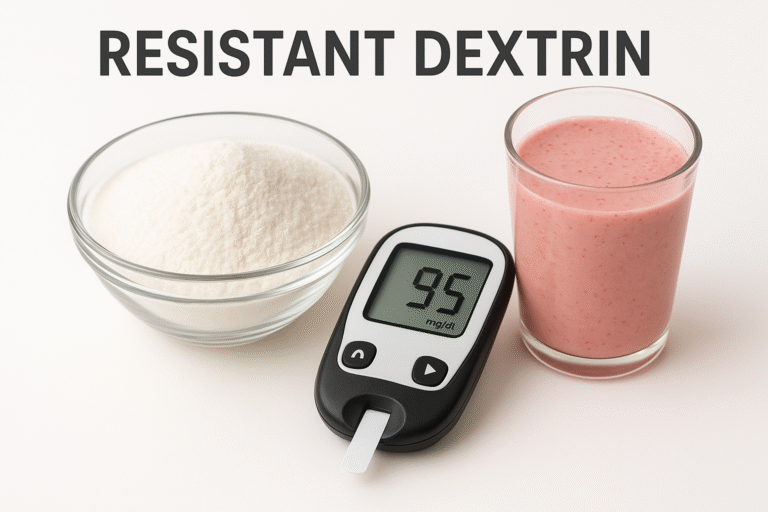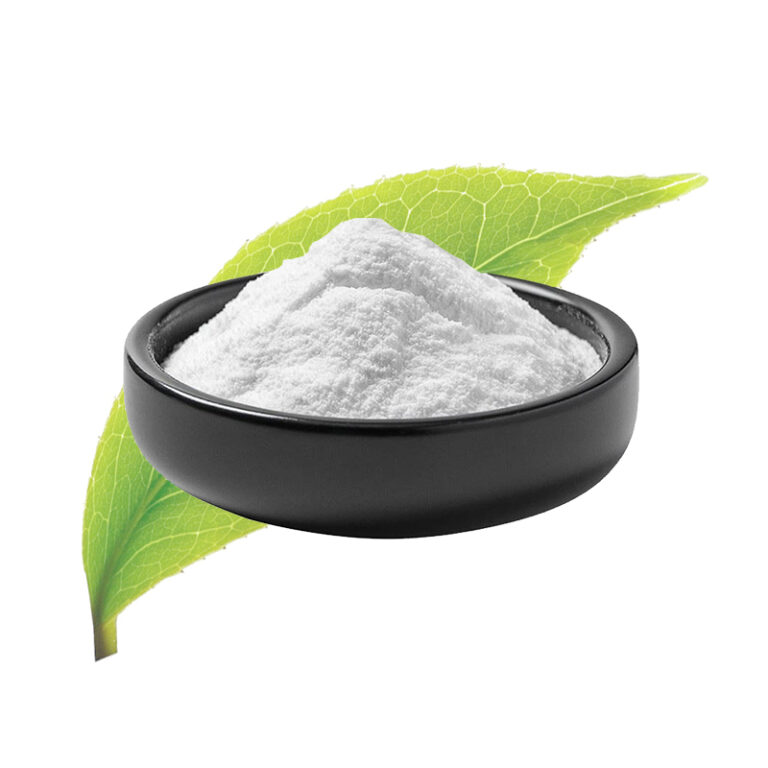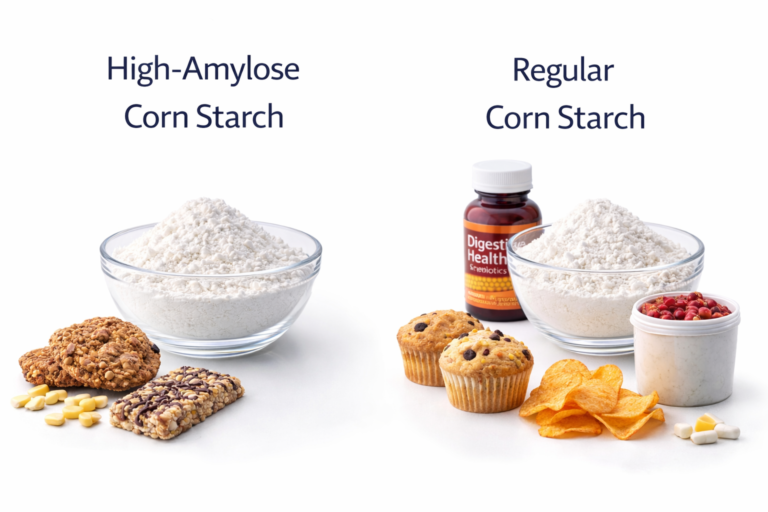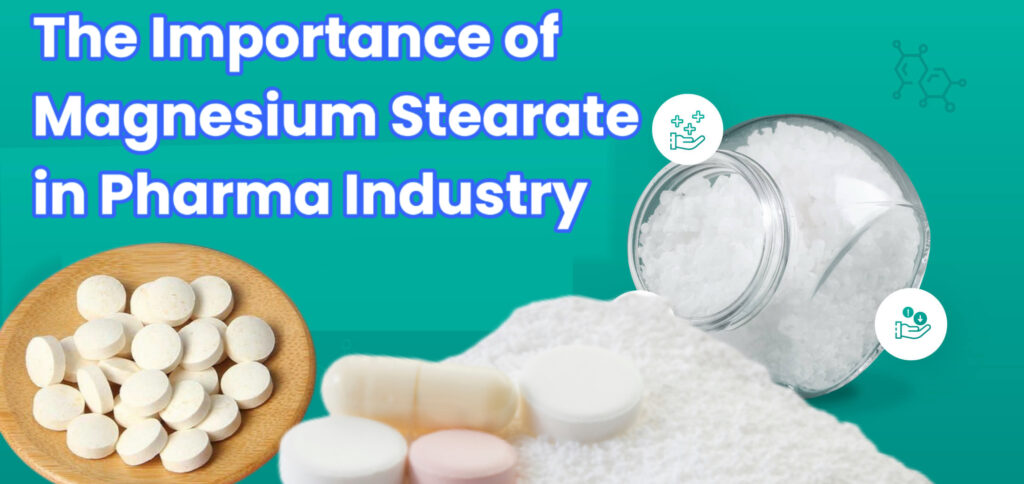
In pharma manufacturing, even the smallest detail can change the outcome. Many companies struggle with production issues like powders sticking to machines, tablets breaking apart, or capsules filled unevenly. These problems cause delays, waste, and loss of trust. The problem is often not the active ingredient but the excipient that supports it.
One excipient, magnesium stearate, is often misunderstood. Some think of it as just a filler or even harmful, but that is far from the truth. The fact is, without it, large-scale pharma production would not run smoothly. The good news is that magnesium stearate solves these challenges, ensuring consistency and efficiency. The best manufacturers know that excipients are not optional—they are essential. Understanding magnesium stearate gives U a clear picture of why it remains a standard choice in global pharma.
Magnesium stearate is one of the most common excipients used in the pharmaceutical industry. It acts mainly as a lubricant to prevent powders from sticking to equipment during tablet compression and capsule filling. This improves production speed, reduces waste, and ensures consistent dosage. It also works as a flow agent, improving powder movement and distribution, which leads to uniform and reliable products. On top of this, magnesium stearate helps with stability, protecting formulations during storage. Global authorities such as the FDA and WHO recognize it as safe when used in regulated amounts. While some see it as only a filler, its function is critical to pharma manufacturing. Without it, large-scale production would face higher costs, longer downtime, and lower product quality.
Magnesium stearate is not just an additive. It is a functional ingredient that supports efficiency, quality, and safety. To see its importance more clearly, let’s look at how it works in different areas of pharma production.
1. Why Is Magnesium Stearate Used in Pharma Manufacturing?
In modern pharma production, manufacturers need efficiency and consistency. One challenge is that powders can stick to machines and cause downtime. Magnesium stearate solves this by acting as a lubricant. It creates a thin layer between powders and equipment surfaces, preventing sticking. Even though it is added in small amounts, usually below 5%, its role is vital. It ensures machines run smoothly, reduces maintenance needs, and protects the production flow.
Magnesium stearate is used because it prevents sticking, improves powder flow, and ensures smooth production.
Main Functions of Magnesium Stearate
| Function | Description | Benefit |
|---|---|---|
| Lubricant | Stops sticking to punches and dies | Smooth production |
| Flow Agent | Improves powder flow | Uniform capsule filling |
| Release Aid | Helps tablets release from molds | Fewer defects |
| Stability Agent | Protects powder during processing | Better consistency |
* Magnesium stearate reduces equipment wear and downtime.
* It helps manufacturers keep a steady and reliable process.
2. How Does Magnesium Stearate Improve Tablet and Capsule Quality?
The end goal of any pharma product is safe and accurate dosing. Magnesium stearate helps achieve this by improving tablet strength, capsule filling, and product stability. It ensures tablets break down at the right speed and capsules hold consistent volumes of active ingredients.
Magnesium stearate improves quality by creating smooth, uniform, and stable solid dosage forms.
Quality Benefits of Magnesium Stearate
| Quality Factor | Effect of Magnesium Stearate | Result |
|---|---|---|
| Tablet Strength | Coats particles for binding | Durable tablets |
| Capsule Uniformity | Improves powder flow | Accurate dosages |
| Appearance | Smooth tablet finish | Professional look |
| Performance | Aids disintegration and absorption | Reliable effects |
* Magnesium stearate improves consistency in final dosage forms.
* It ensures pharma products meet GMP quality standards.
3. Is Magnesium Stearate Safe for Human Consumption?
One common concern is whether magnesium stearate is safe. Some believe it is harmful, but studies and global health authorities disagree. It is widely approved and listed in pharmacopeias. The body processes it like other natural dietary fats.
Magnesium stearate is safe for human use within regulated limits, approved by FDA, EFSA, and WHO.
Safety Recognition
| Authority | Decision | Note |
|---|---|---|
| FDA | GRAS (Generally Recognized as Safe) | Approved for food and drugs |
| EFSA | Safe excipient | Used in supplements |
| WHO | Acceptable intake defined | No toxicity found |
* Magnesium stearate has no proven harm at regulated levels.
* It is metabolized naturally like dietary fats.
4. What Role Does Magnesium Stearate Play in Large-Scale Production?
Mass production in pharma requires speed and precision. Any small issue can stop production and cause high losses. Magnesium stearate supports efficiency by ensuring powders move easily and machines do not jam.
Magnesium stearate helps large-scale production by reducing friction, waste, and downtime.
Large-Scale Benefits
| Factor | With Magnesium Stearate | Without It |
|---|---|---|
| Downtime | Very low | Frequent cleaning |
| Consistency | High | Variable |
| Cost | Reduced | Increased |
| Output | Optimized | Slower |
* Magnesium stearate helps manufacturers save time and costs.
* It supports reliable scale-up from lab to mass production.
5. How Does Magnesium Stearate Compare to Alternative Excipients?
Some companies explore alternatives like sodium stearyl fumarate or talc. While these options may have specific uses, they often cannot match the balance of cost, performance, and acceptance that magnesium stearate provides.
Magnesium stearate outperforms most alternatives due to its proven efficiency and low cost.
Comparison of Excipients
| Excipient | Pros | Cons |
|---|---|---|
| Magnesium Stearate | Cost-effective, widely accepted | Consumer misunderstanding |
| Stearic Acid | Natural source | Less lubrication |
| Sodium Stearyl Fumarate | Faster disintegration | Higher price |
| Talc | Stable and inert | Weak lubrication |
* Magnesium stearate offers the best balance between cost and performance.
* Alternatives exist but are less widely accepted.
6. Why Should Pharma Brands Trust Reliable Magnesium Stearate Suppliers?
The quality of magnesium stearate depends on the supplier. Differences in purity, particle size, and compliance can affect results. Reliable suppliers deliver pharmacopeia-grade material that meets strict standards.
Trusted suppliers ensure consistent, safe, and pharmacopeia-compliant magnesium stearate.
Supplier Checklist
| Requirement | Why It Matters |
|---|---|
| GMP Certification | Proves compliance |
| Pharmacopeia Grade | Guarantees purity |
| Traceability | Avoids contamination |
| Technical Support | Helps with formulations |
- A reliable supplier ensures batch-to-batch consistency.
- Choosing the right partner reduces compliance risks.
Magnesium stearate is one of the most important excipients in the pharma industry. It supports smooth production, consistent product quality, and safety. Although some myths exist, scientific evidence and regulatory approval confirm its value. For pharma companies, magnesium stearate is not just a minor ingredient but a foundation of efficient and reliable production.
At Besty Pharma, U gain access to high-quality, pharmacopeia-grade magnesium stearate with full certification and compliance. With 6 modern production lines and one-stop OEM/ODM services, we support your projects from raw material sourcing to finished product manufacturing. Partner with us to simplify procurement, reduce risks, and ensure consistent results. Visit us at bestypharma.com to learn how we can serve your pharma needs.

